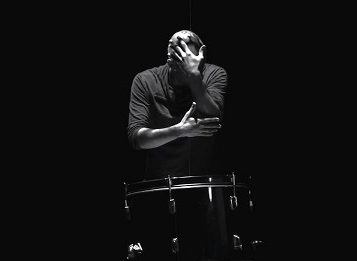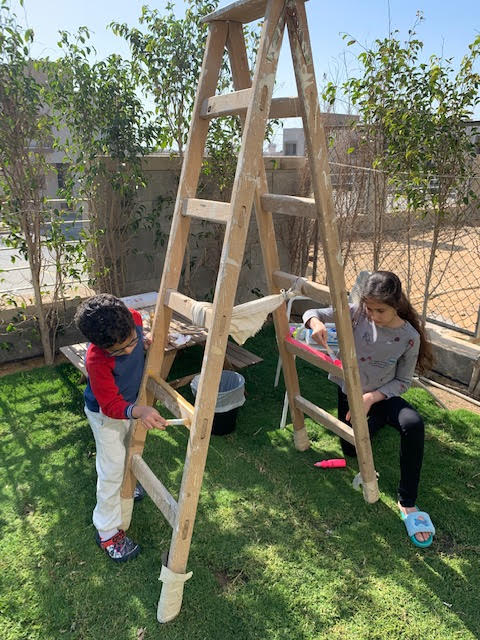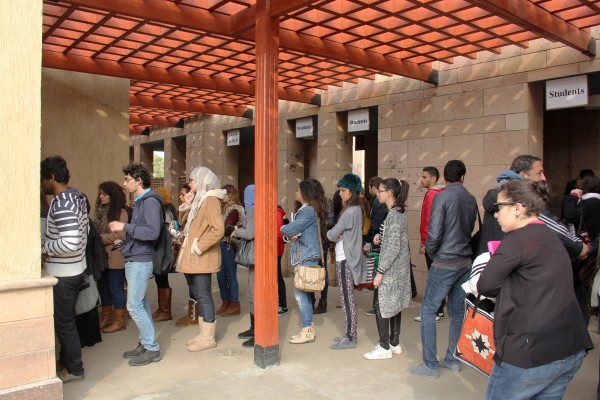Cairo Contemporary Music Days Turns the Spotlight on Experimental Artforms
By: Mariam Ismail
Follow @mariam_ismail1
The Annual Cairo Contemporary Music Days, held from April 14 to 29, features various sessions and concerts in cultural institutions all over Cairo to promote and raise awareness about contemporary music.
Founded in 2010, the event is organized by the European-Egyptian Contemporary Music Society (EECMS), one of the leading promoters of contemporary music in Egypt and the Arab world.
“Contemporary music is music without limits. It is about being open and experimenting with the things around you. It is liberating,” said EECMS Project Manager Hossam Khaled.
The annual event explores themes of sensuality, spirituality and physicality through the use of new and innovative techniques in both composition and performance.
The use of new and innovative techniques, which characterize contemporary music, are highlighted through a series of both academic fora and musical concerts.
“The festival is a platform for so many things happening. We are not concert organizers, we are so much more, we help innovate the music scene in Egypt,” said Sherif El Razzaz, founder and General manager of EECMS and the Cairo Contemporary Music Days.
EECMS and AUC partnered in 2010, when El Razzaz met with then-dean of school of humanities, Bruce Ferguson, to allow for an environment where students could be introduced to and taught more about music.
This year, two of the festival’s fora were held in AUC’s Malak Gabr Theatre, the first of which featured Luis Tabuenca, a world-famous percussionist, on April 15.
Tabuenca approaches music in a way that is both spiritual and intersectional; he believes the body should have an effect on the music, as should the music on the body.
As for intersectionality, his compositions explore the links between music and the senses, the body, art, texts, videos and dialogue.
All of his pieces can be traced back to poems, paintings and other artforms, which create an interesting space where the audience can see how he managed to translate visuals and text into an aural experience.
This movement between different mediums comes to light especially in his piece Correción, where he applies a dripping wet rag on the drum to create a tempo; one that is out of his control, slowing down towards the end.
He manages to create a certain atmosphere based on this tempo, all while moving his body in a way that is meant to show how the music flows out of his body.
He sways to the rhythm, his fingertips gliding over the instruments, creating a surreal aural and visual experience.
“I tried to explore. I used improvisation to make a dialogue between the instrument and the voice,” Tabuenca said during his talk.
The second lecture was titled “Introduction to Live Electronic Performance,” with Arne Vierck, a member of the Ensemble Mosaik and sound engineer, Berlin founded contemporary music ensemble, and took place on April 19.
Founded in 1997 in Berlin, the Ensemble Mosaik tries to demonstrate openness to the most diverse concepts of contemporary music at the highest artistic levels through performances, similar to Tabuenca, featuring scenic and visual elements in concert projects.
Another contemporary element to their music is their experimentation with computers for digital sound creation and reproduction in the creative processes of composition and interpretation.
The talks cover a wide array of aspects to do with both, music production and personal concepts as well as how to manage a large music venue.
“What is really special about contemporary music is that the audience will receive it in their own way. Even if the audience doesn’t like it, everyone’s interpretation of it is different. It takes you to a different direction,” said Khaled.
The Cairo Contemporary Music Days festival has held events at AUC for the past six years, but El Razzaz complains that every year the turnout is less than what is expected, and less than the year before.
“We have a lot of venues, but we chose to hold two major talks at AUC so that we could reach the students, but we were very surprised when we did not find more than a handful of music technology or music students present. Even the professors didn’t show up,” said El Razzaz.
Both talks had a scattered audience of less than 20 people.
“We ask some of the world’s most famous musicians to come and speak and it is embarrassing to them and us when only a few students show up, most of them looking uninterested,” he adds.
Most of the students, and even professors, in the audience were playing with their phones or snickering when Tabuenca explained how to let music come out of your body as he sat on his knees and banged on his head.
“The main goal of this event isn’t to make everyone in Egypt fall in love with contemporary music, but we want the people who do care about it to show up.”
AUC has also ended its financial support of EECMS, which together with decreasing turnout, has discouraged them from continuing their partnership with the University.




